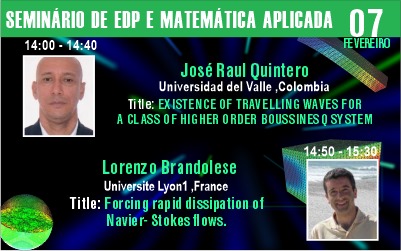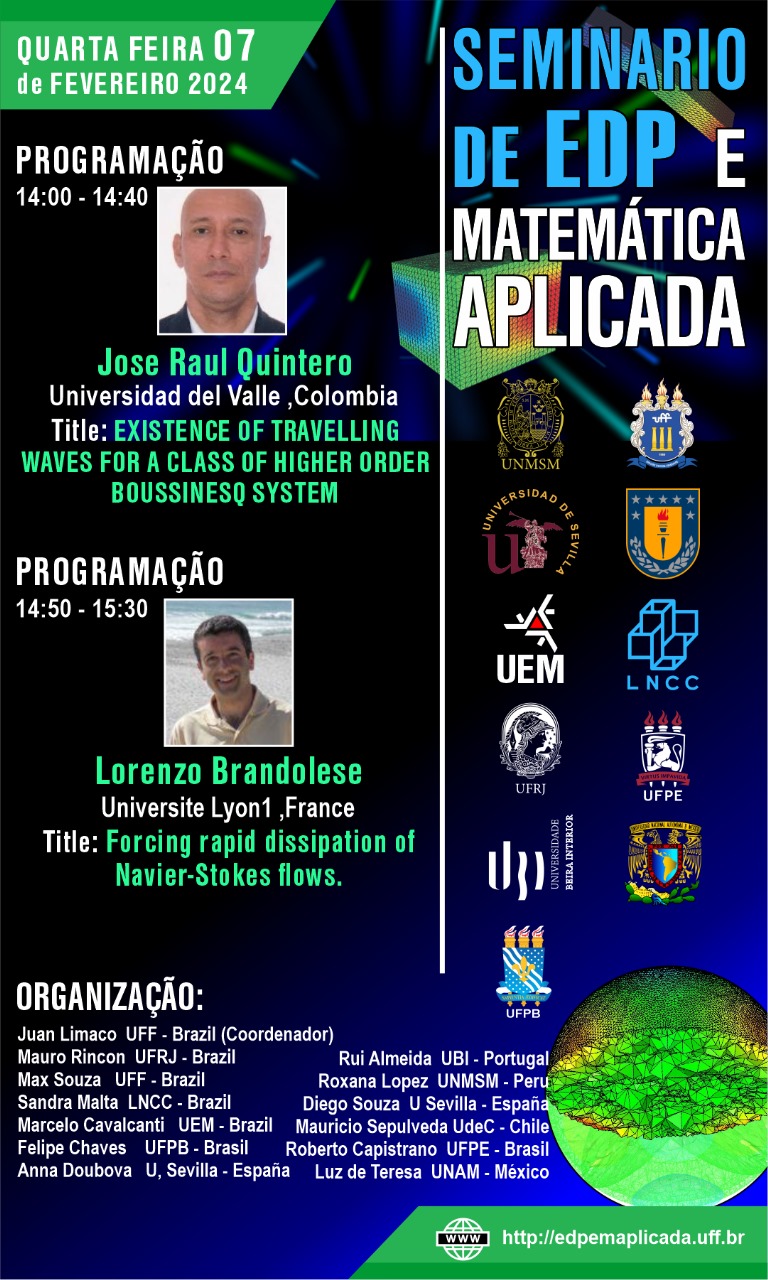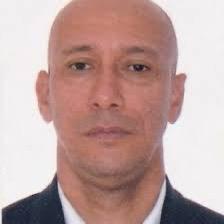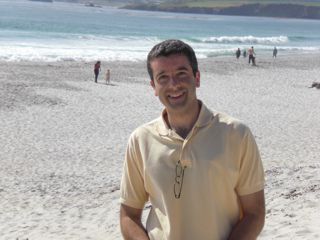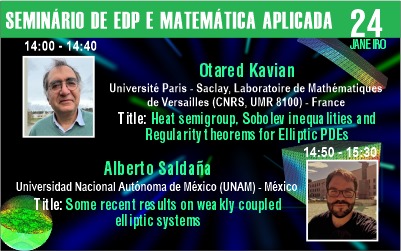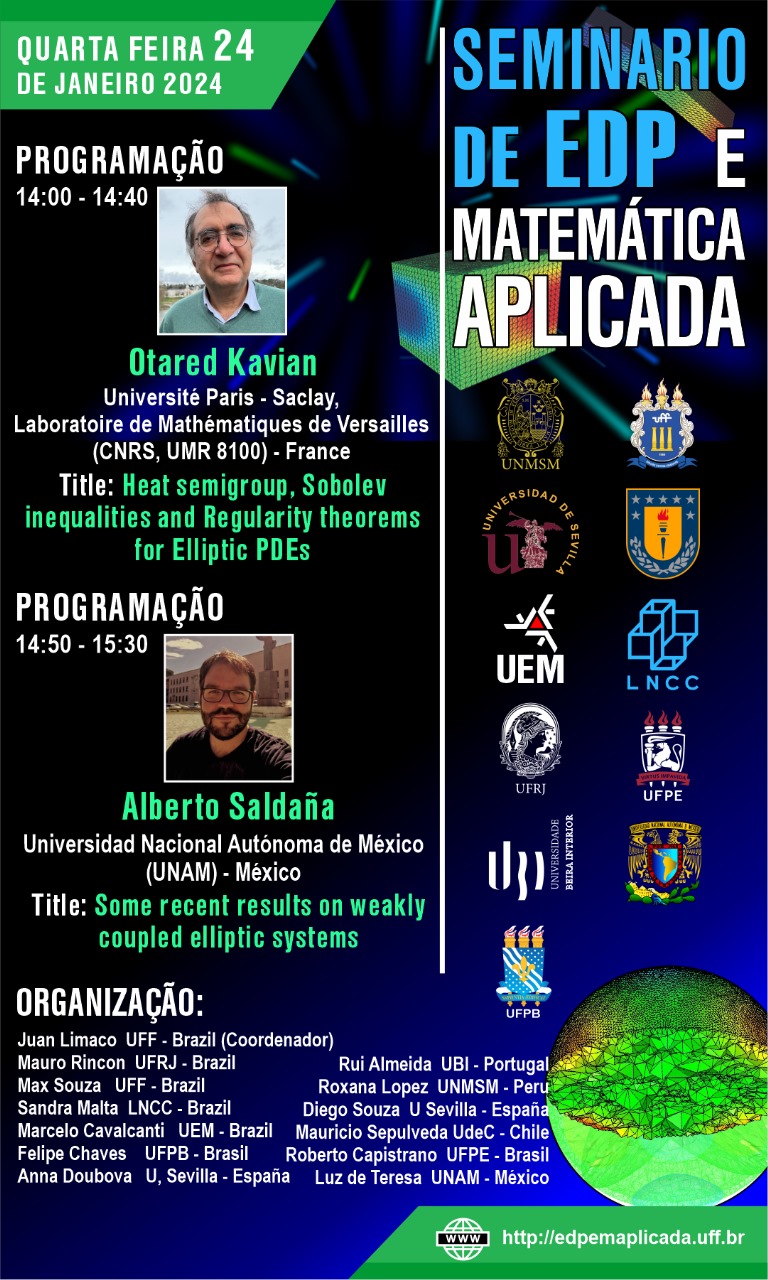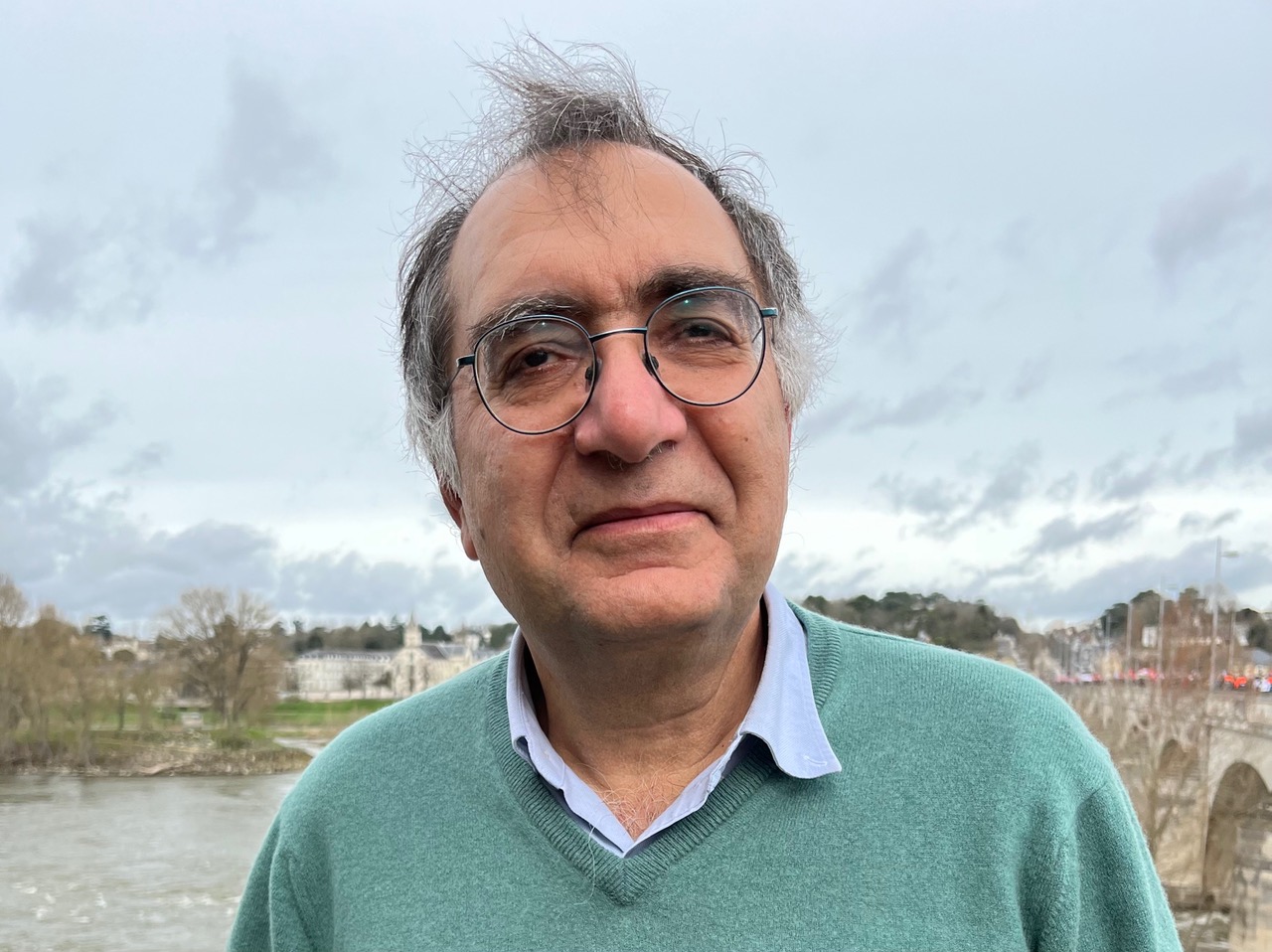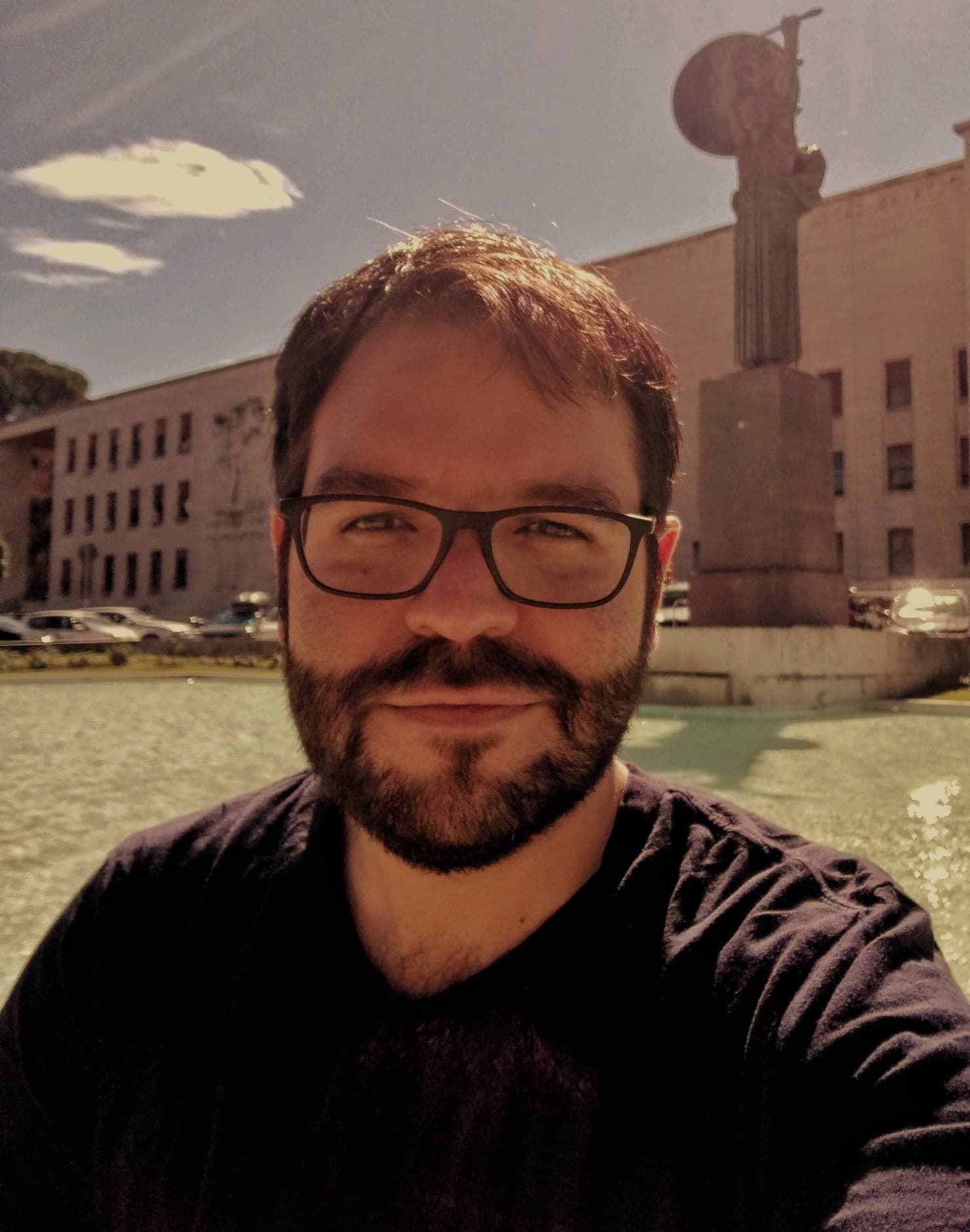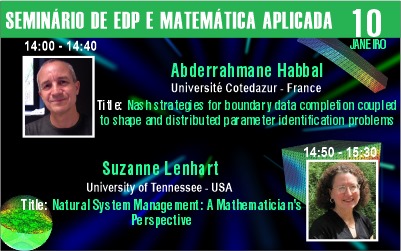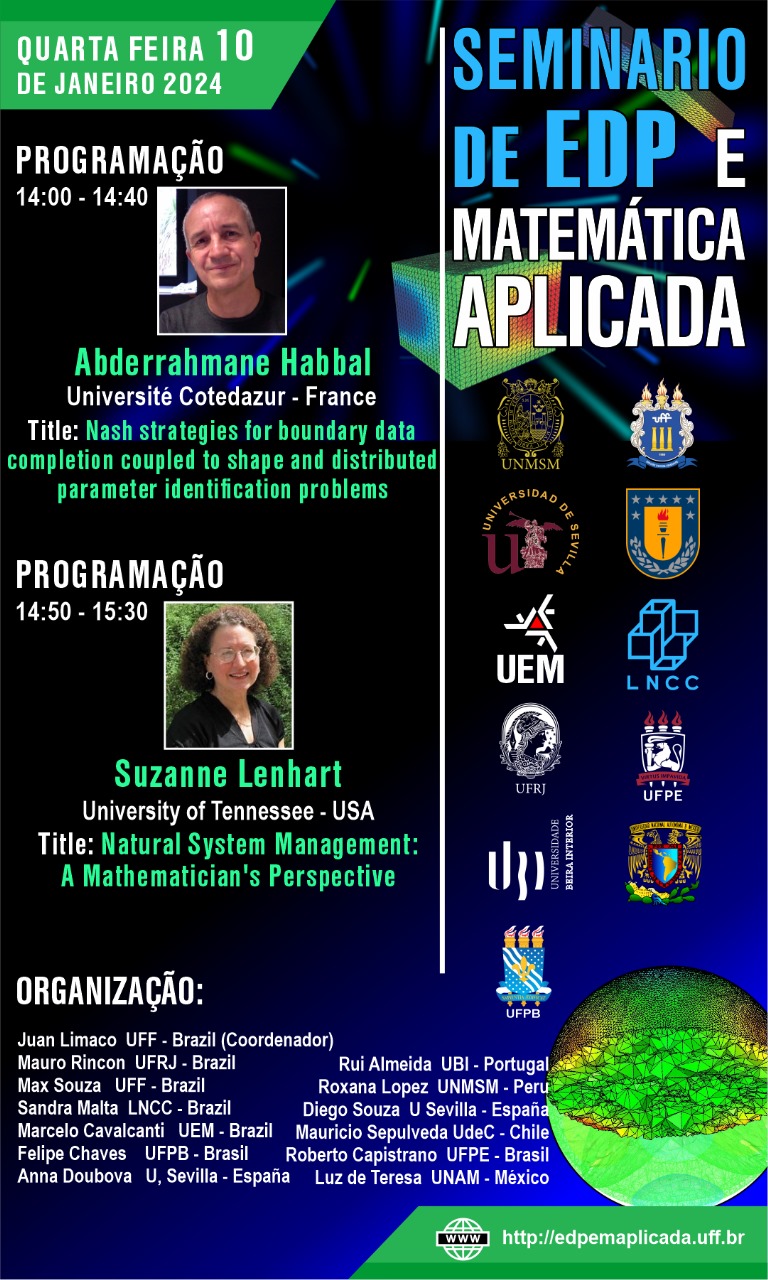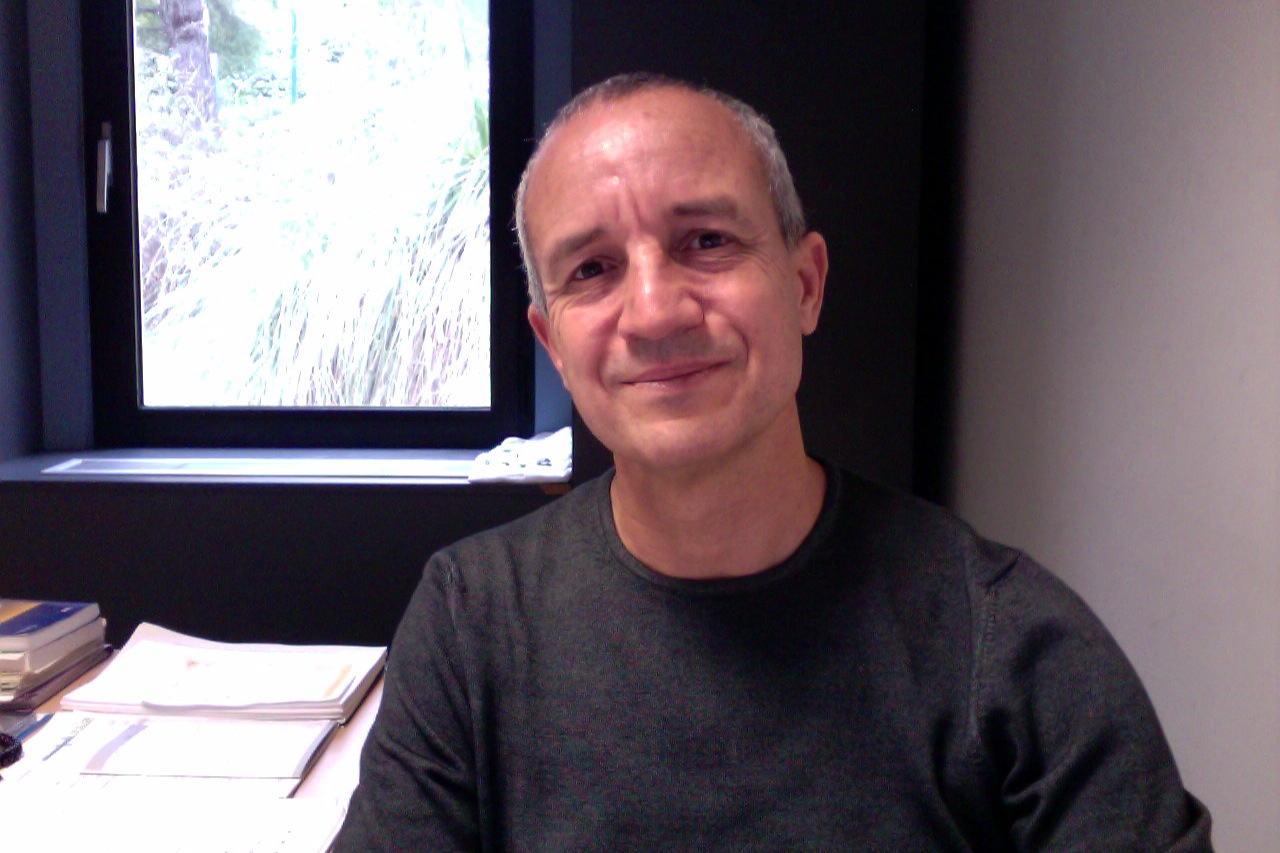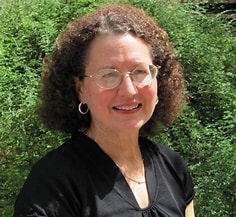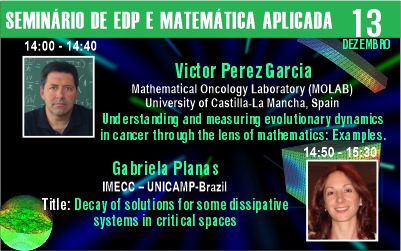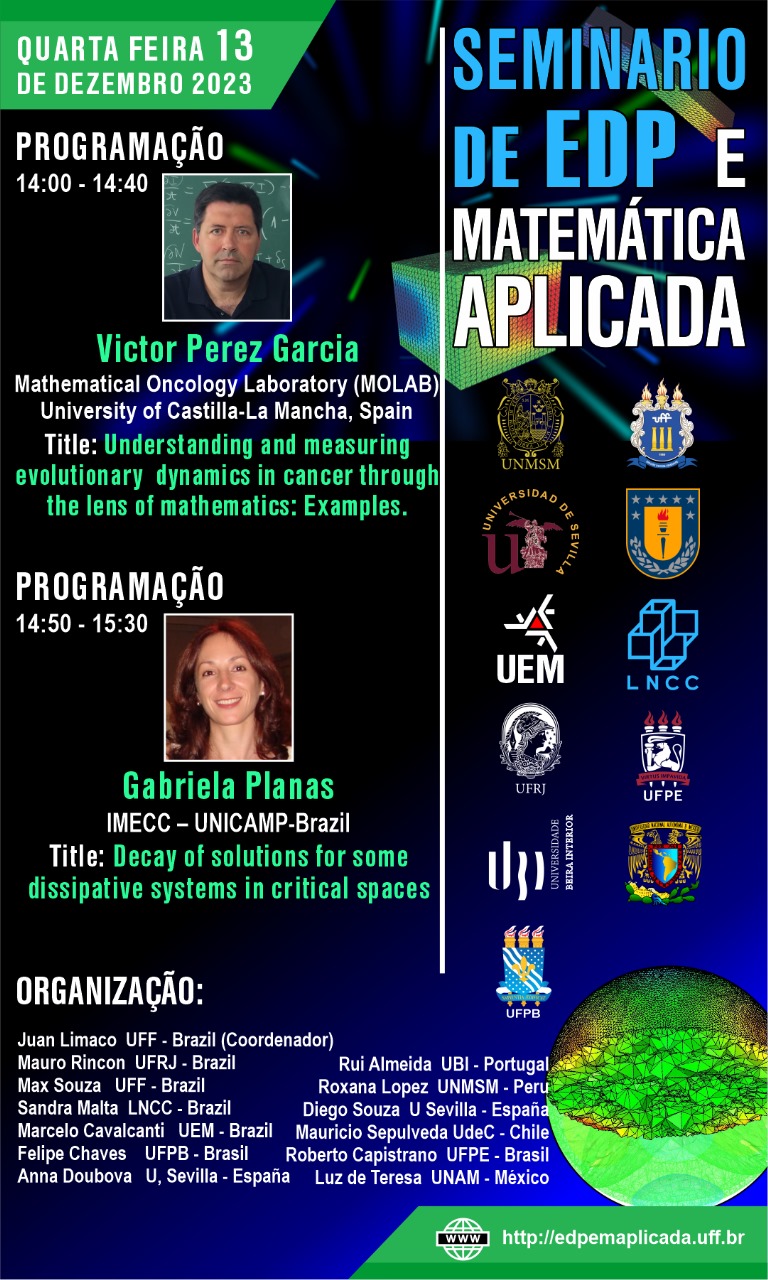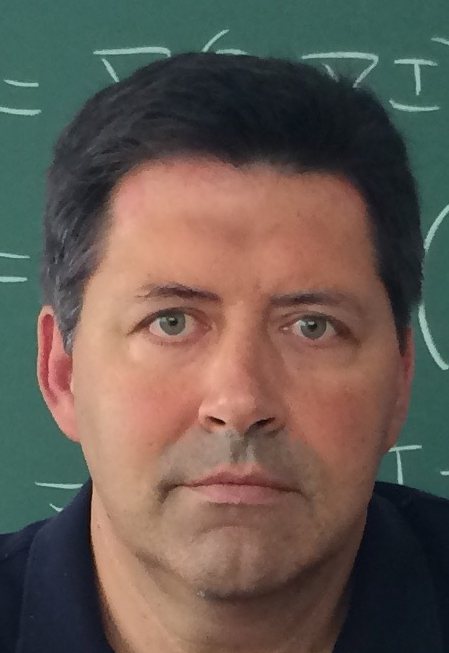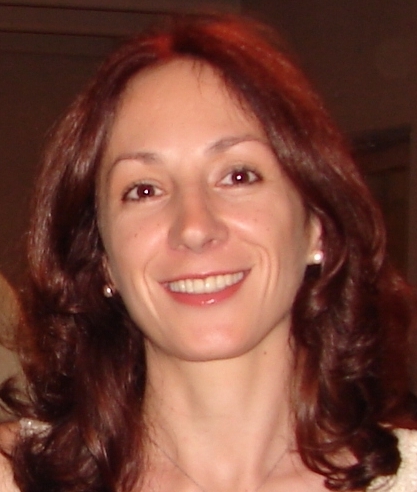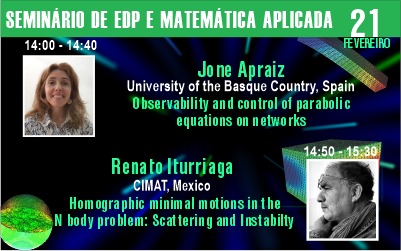
Seminar February 21 of 2024
Seminar in EDP and Applied Mathematics
February 21, 2024 – 14h (Brazil)
Streaming: Youtube Channel | SEMINARIO DE EDP E MATEMATICA APLICADA
Event
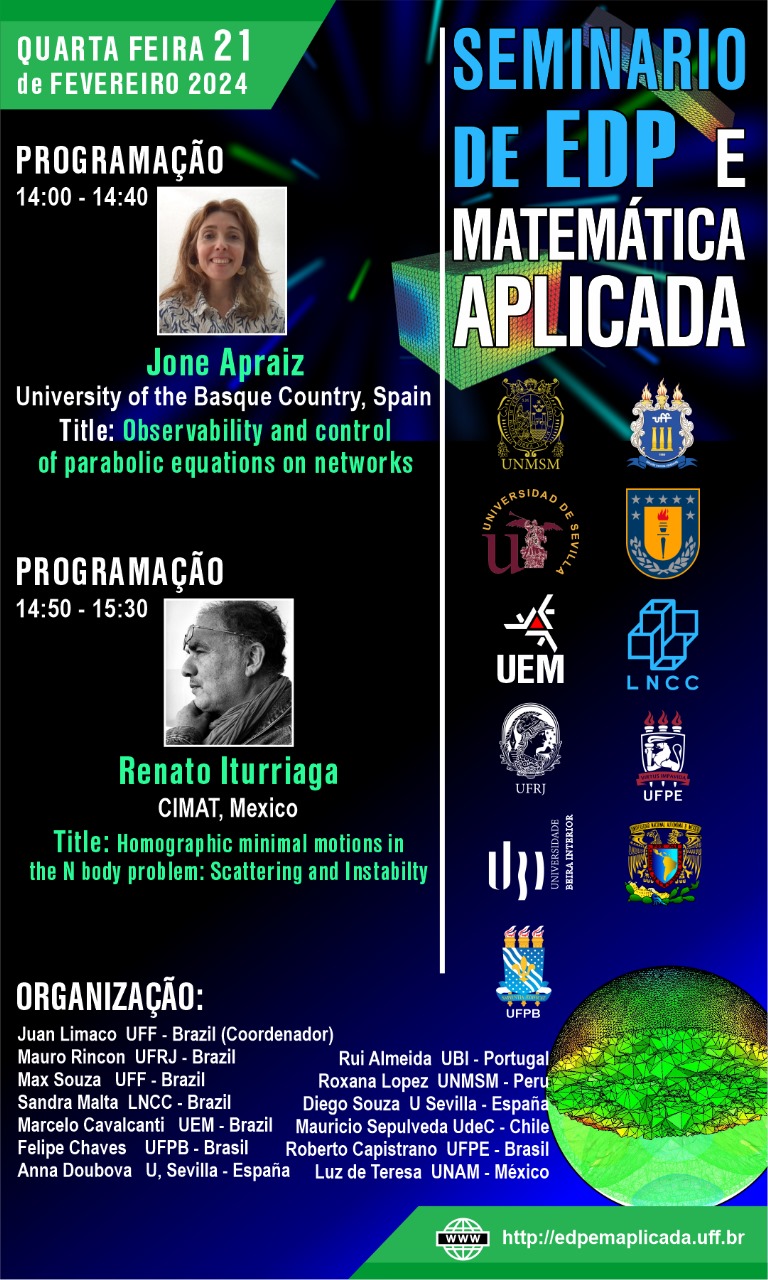
About Seminars
Our Online Seminar is one of the most important events in Brazil, it has been held since August 2020, every Wednesday at 2 pm, Brasília time, with a frequency of 14 days. Two 40-minute lectures are presented in each session. Our speakers are world-renowned mathematicians from Europe, the United States and South America.
Featured Talks & Speakers
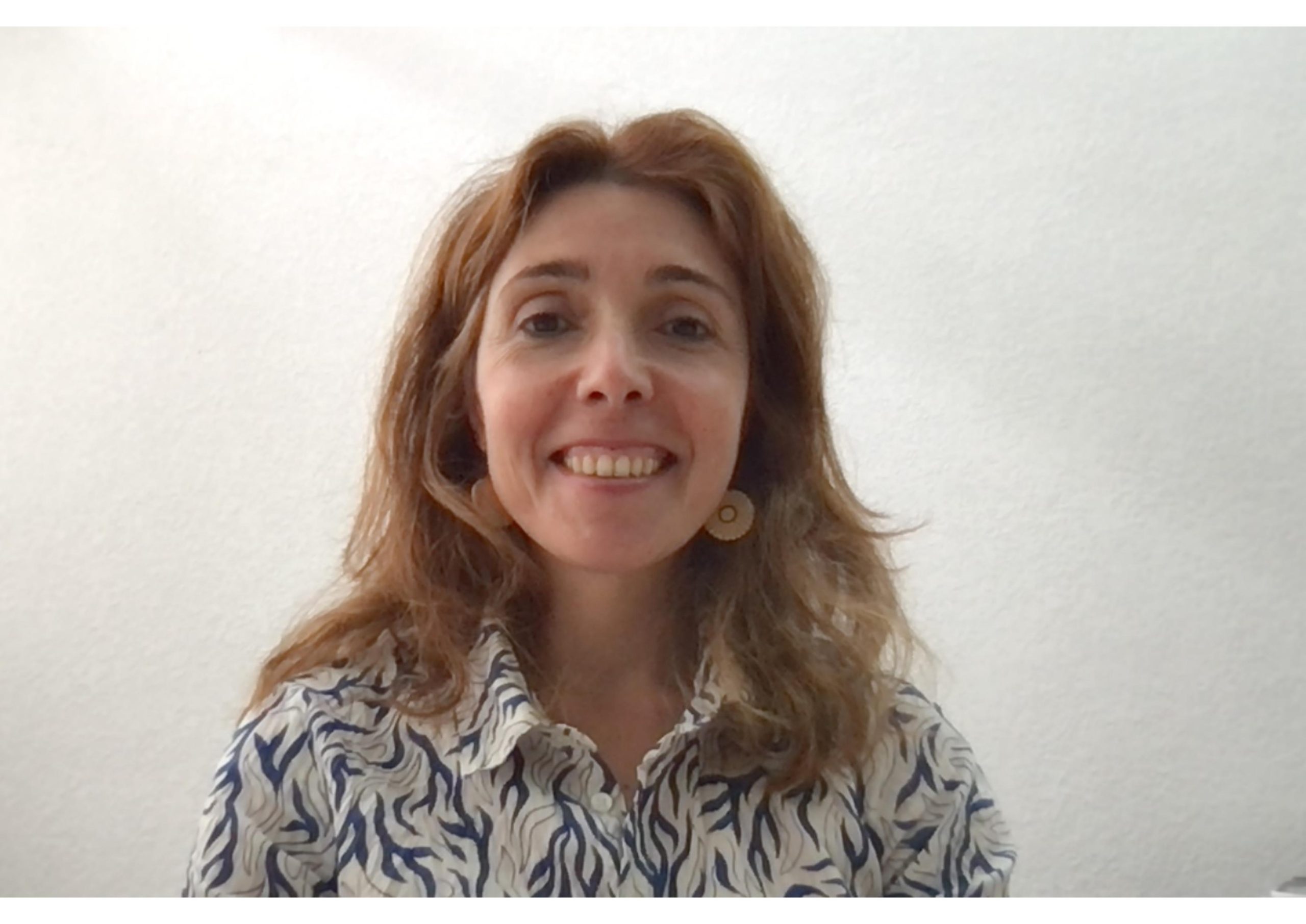
Jone Apraiz
University of the Basque Country, Spain
14:00h – 14:40h
Observability and control of parabolic equations on networks
During the last decades, the use of networks has been very helpful and effective in the
study of pipes, neural systems, the flow of traffic on roads, the global economy or the
human circulatory systems.
In this talk I would like to show you a contribution to this area from the fields of control
theory and inverse problems. We will consider the propagation of diffusion on a network
with loops. Our objective is to control these networks by acting on the system that
models the process of the heat diffusion in them, both by open-loop and closed-loop
controls, extending in this way the results of [2] and [3] to networks with loops.
The observability of the entire network will be achieved under certain hypotheses about
the position of the observation domain. This will be done using a Carleman inequality.
Then, we will use that observability to prove the null controllability of the network and
to obtain the Lipschitz stability for an inverse problem consisting of retrieving a
stationary potential in the heat equation from measurements on the observation
domain.
This work has been done in collaboration with Jon Asier Bárcena-Petisco, from the
University of the Basque Country, and is based on the article [1].
References
[1] J. Apraiz and J. A. Bárcena-Petisco, Observability and control of parabolic equations
on networks with loops, Journal of Evolution Equations 23, 37, 2023,
https://doi.org/10.1007/s00028-023-00882-2 .
[2] J. A. Bárcena-Petisco, M. Cavalcante, G. M. Coclite, N. Nitti and E. Zuazua, Control of
hyperbolic and parabolic equations on networks and singular limits, hal-03233211
(2021).
[3] L. Ignat, A. F. Pazoto and L. Rosier, Inverse problem for the heat equation and the
Schrödinger equation on a tree, Inverse Prob. 28, 1, (2011), 015011.

Renato Iturriaga
CIMAT,Mexico
14:50h – 15:30h
Homographic minimal motions in the N body problem: Scattering and Instabilty
d an exponential decay estimate for solutions corresponding to small initial data. An extension to viscoelastic wave equations with time delay is also discussed.
About Organization
Juan Limaco – UFF – Brazil (Coordenador);
Mauro Rincon – UFRJ – Brazil
Max Souza – UFF – Brazil;
Sandra Malta – LNCC – Brazil
Marcelo Cavalcanti – UEM – Brazil;
Rui Almeida – UBI – Portugal
Roxana Lopez – UNMSM – Peru;
Diego Souza – U Sevilla – España;
Mauricio Sepulveda – UdeC – Chile;
Roberto Capistrano – UFPE – Brazil.
Our Partners
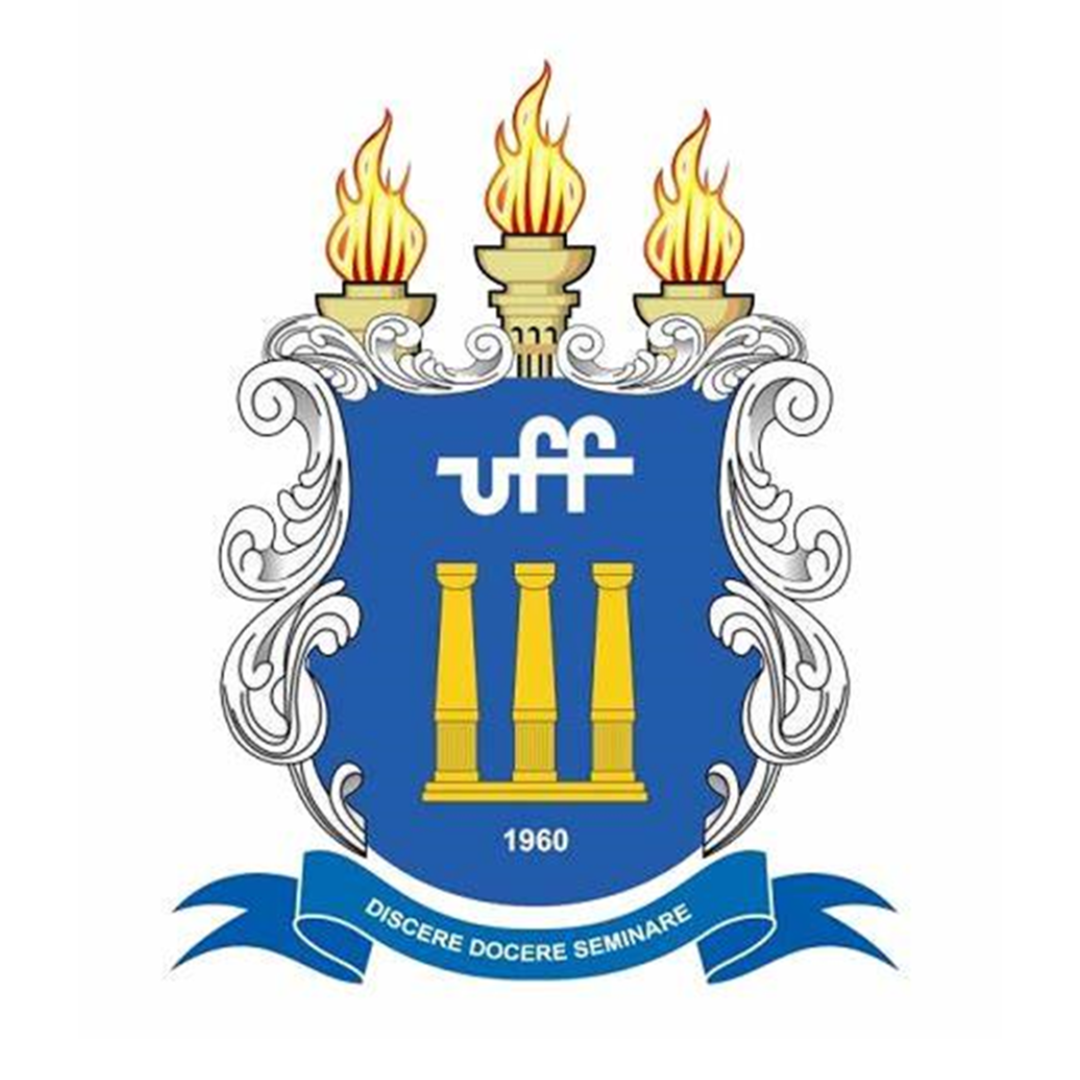

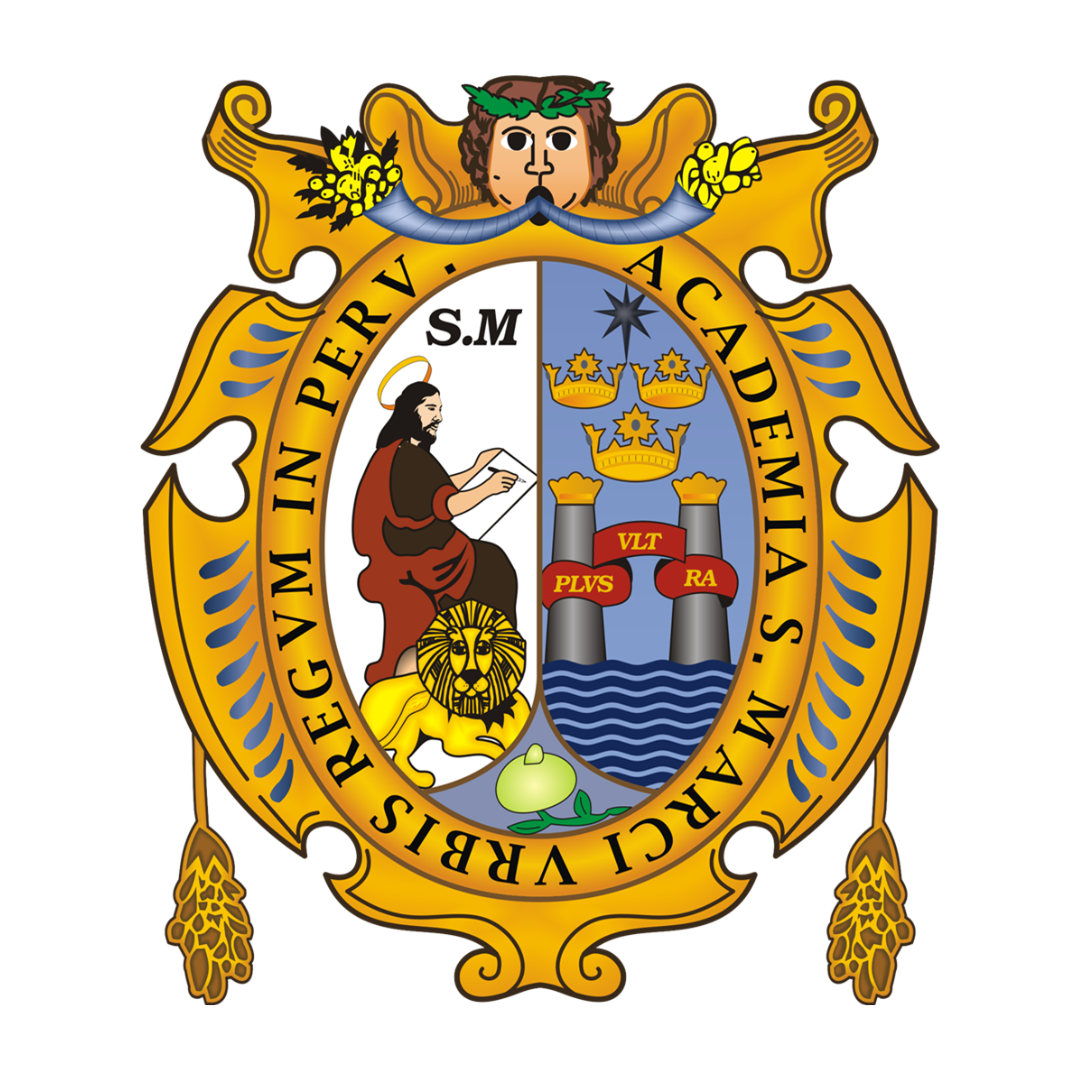

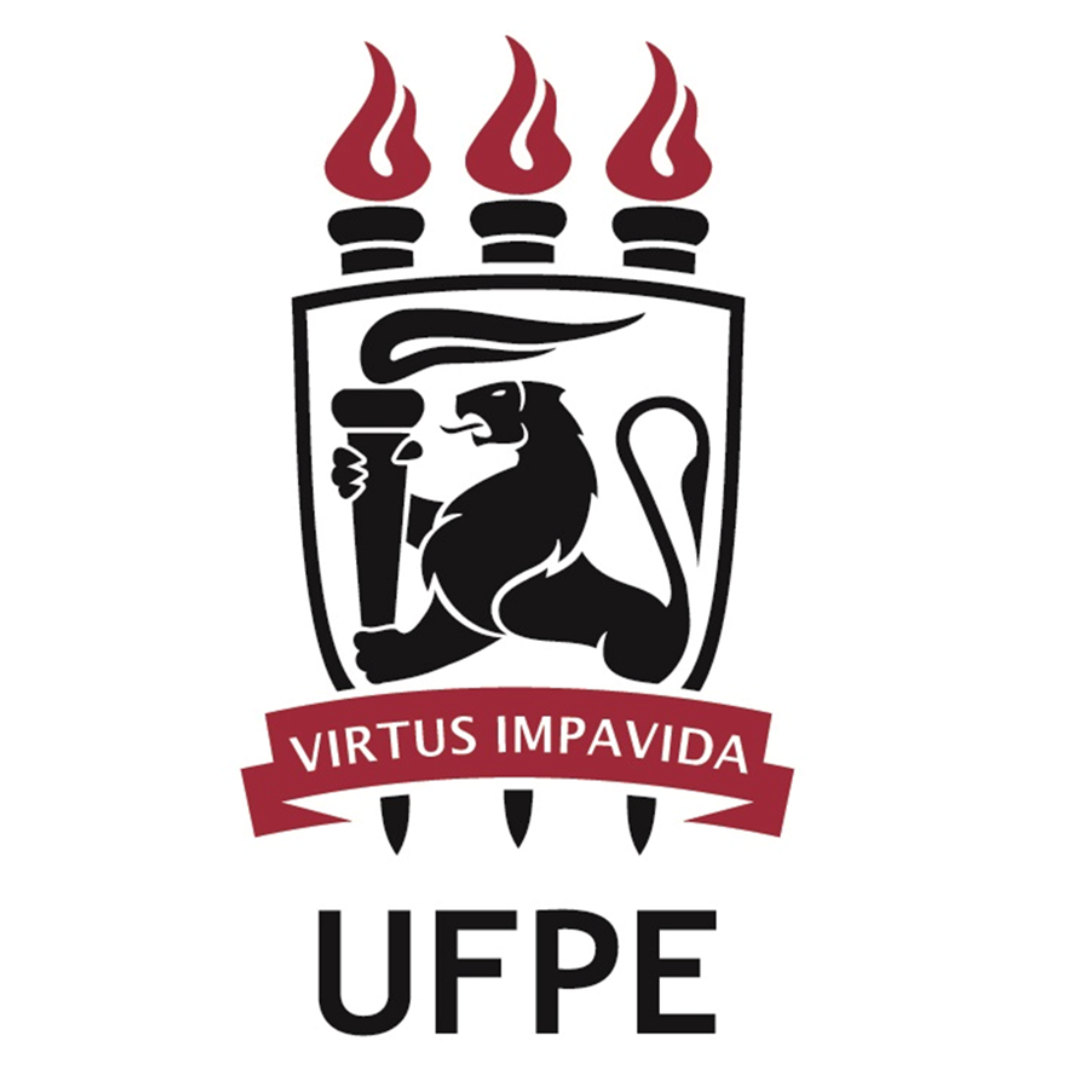
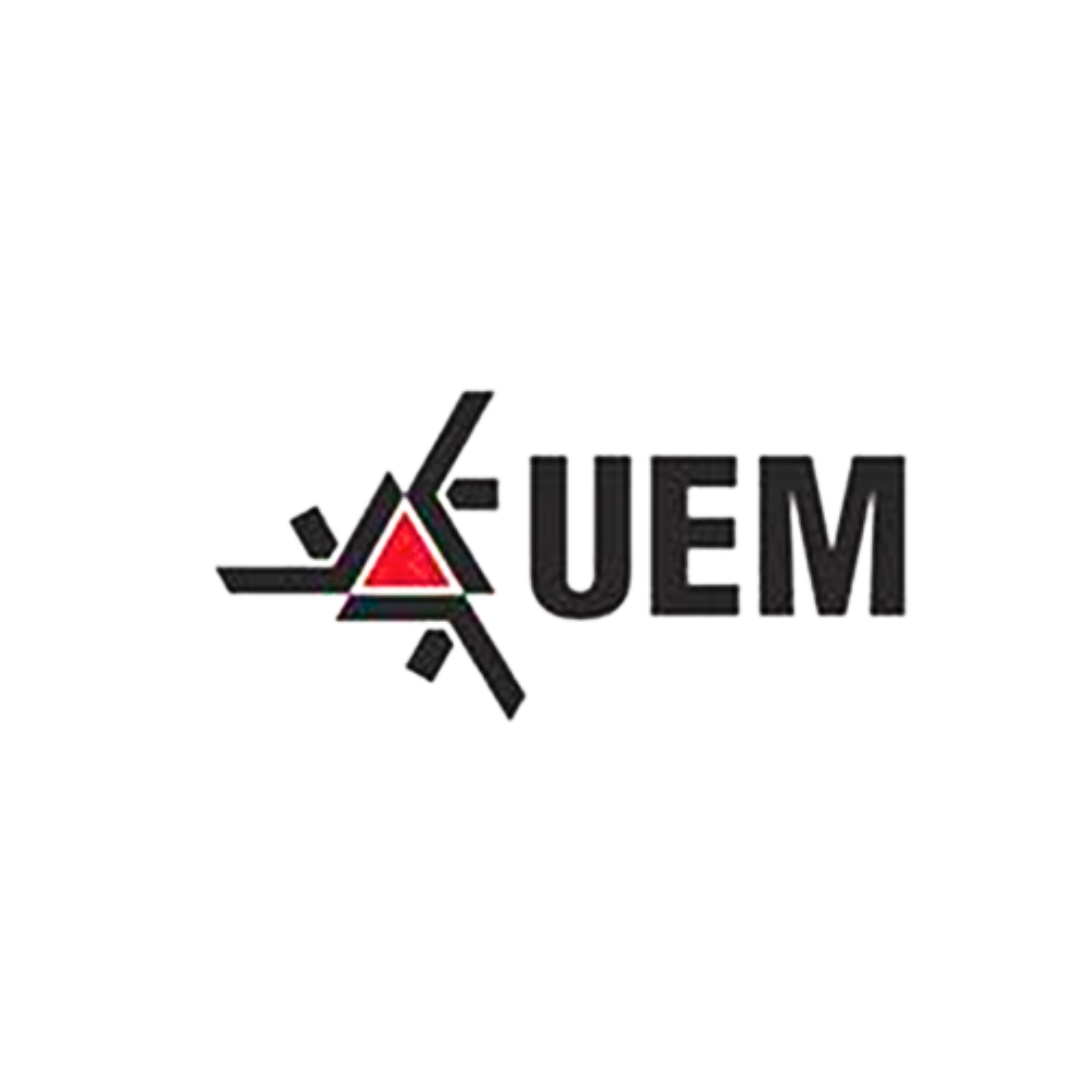
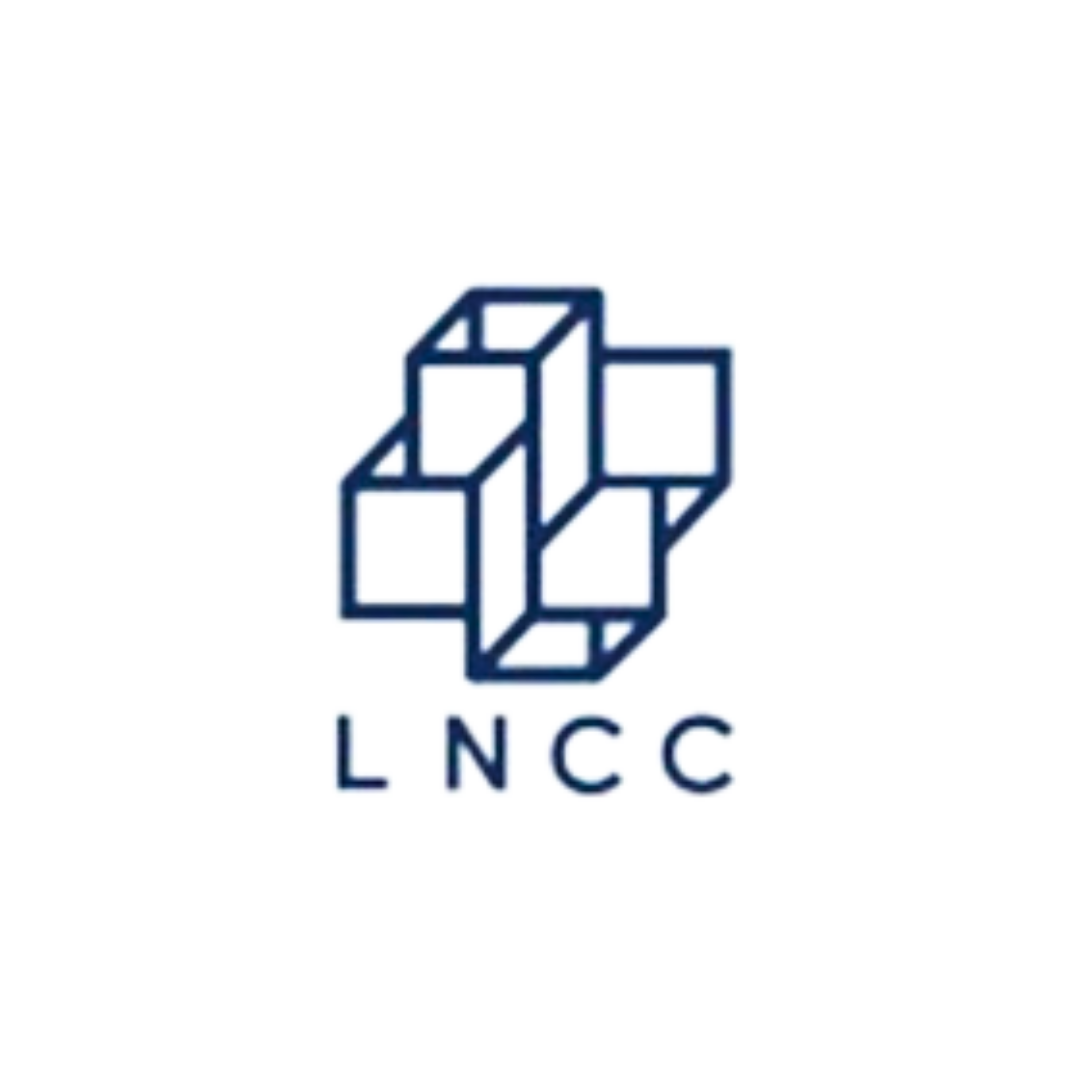

Access our channel!
A channel for students, professors, researchers and professionals who wish to deepen their knowledge in EDP and applied mathematics.

